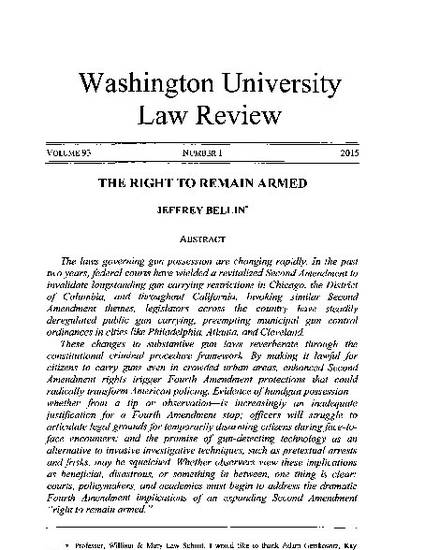
The laws governing gun possession are changing rapidly. In the past two years, federal courts have wielded a revitalized Second Amendment to invalidate longstanding gun carrying restrictions in Chicago, the District of Columbia, and throughout California. Invoking similar Second Amendment themes, legislators across the country have steadily deregulated public gun carrying, preempting municipal gun control ordinances in cities like Philadelphia, Atlanta, and Cleveland.
These changes to substantive gun laws reverberate through the constitutional criminal procedure framework. By making it lawful for citizens to carry guns even in crowded urban areas, enhanced Second Amendment rights trigger Fourth Amendment protections that could radically transform American policing. Evidence of handgun possession - whether from a tip or observation - is increasingly an inadequate justification for a Fourth Amendment stop; officers will struggle to articulate legal grounds for temporarily disarming citizens during face-to-face encounters; and the promise of gun-detecting technology as an alternative to invasive investigative techniques, such as pretextual arrests and frisks, may be squelched. Whether observers view these implications as beneficial, disastrous, or something in between, one thing is clear: courts, policymakers, and academics must begin to address the dramatic Fourth Amendment implications of an expanding Second Amendment "right to remain armed."
Available at: http://works.bepress.com/jeffrey-bellin/43/
